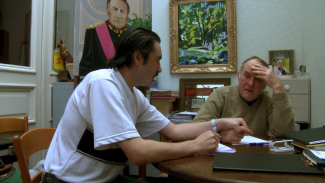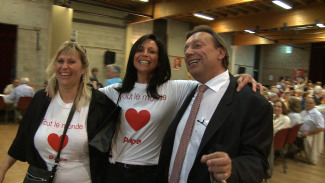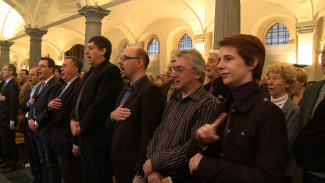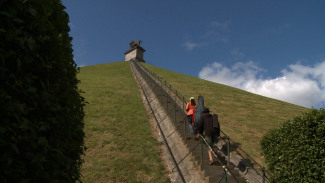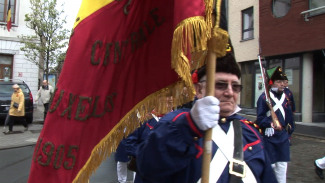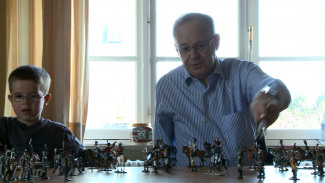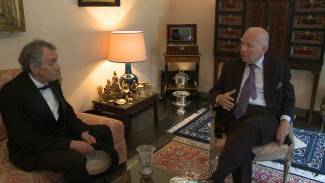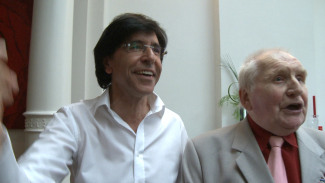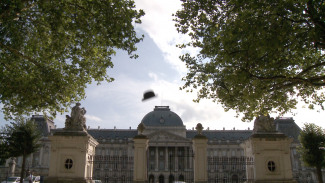La Royale Harmonie
Is Belgium an ailing country? Manu Bonmariage puts these questions to a host of political figureheads, in the aim of drawing out their personal comments on the Belgian political dead-end that has made headlines around the world for months.
Manu Bonmariage was born in Chevron, near Liège in Belgium on 29 March 1941. His mother was a farmer and his father a forest ranger. He lost an eye at the age of 6.
He later left his forest in the Ardennes to travel the world. After studying communications at IHECS, he first worked as cameraman in film, then as cameraman-reporter at the Belgian Teleradio (RTBF). It was there that he took part in Pierre Manuel and Jean-Jacques Péché’s Faits divers show (the precursor of the TV show Strip-tease).
He was mostly called upon for his dexterity with the handheld camera and filmed many in-depth reports for the RTBF. He filmed everywhere from Saigon to Bilbao, from Charleroi to Yaoundé. And of course in the Belgian steel mill town of Seraing!
At 38, Manu Bonmariage became a director himself and today is the author of over 80 films, many of them from Striptease, the show that made him famous. These also (re)defined a certain vision of truth in front of the camera.
Manu Bonmariage films close to people in their everyday lives and in their struggles great and small.
He is passionate about his work and his documentaries were shown worldwide being regularly awarded in festivals, films such as Du beurre dans les tartines (1980) ,which chronicals the restructuring process of a struggling mechanical tool company in Wallonia; Allô Police (1987) a human-sized portrayal of the social work carried out by the Charleroi police; Les Amants d’assises (1992) shows the changes in two lovers reunited by a crime; The Will of God (1993) about a Boer community in postapartheid South Africa; Baria et le Grand Marriage (2001) relates the forced marriage of a Marseille teenage girl of Comorian descent; Ainsi soit-il on the religious life of Father Jean who ends up marrying his clergy assistant; La Terre amoureuse (2002) on the everday life of four Walloon farming families in the region of Stavelot. His last film, Vivre sa mort (2015) shares the perspectives of two men in their fight for the right to die in dignity.
Because of its closeness and caring, Manu Bonmariage’s camera strings together moments of men and women’s lives, carving out a portrait of the world over these past thirty years.
written and directed by
Manu Bonmariage
with
Frans Badot
Jules Gheude
Marc Eyskens
Eric Defoort
François Perin
Elio Di Rupo
Michel Daerden
Jean-Claude Van Cauwenberghe
Emile & Marguerite Cantiniaux
edited by
Geoffroy Le Grelle
assistant-director
Gwendoline Feron
mix
Peter Van Laerhoven
colorgrading
Frank Temmerman
original music by
Matthieu Thonon
an Off World production
in co-production with
Luna Blue Film
RTBF
with the support from
Flanders Audiovisual Fund (VAF|FILM)
le Centre du cinéma et de l’audiovisuel de la communauté française de Belgique et des télédistributeurs wallons

